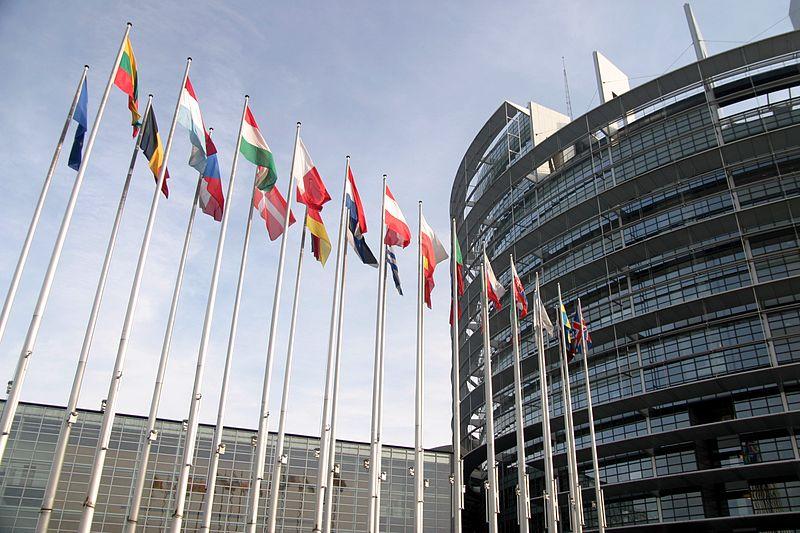26 of 27 European Union countries indicate interest in tighter economic ties
European countries agreed to a major handover of international sovereignty and serious financial limits in an effort to save the euro and the struggling eurozone economy. The European Parliament, in Strasbourg, France, is pictured. (Photo by Rama, via Wik
Working into the early hours of Friday mornings, negotiators for the 17 eurozone countries reached an agreement on an intergovernmental protocol to regulate structural deficits and implement automatic consequences for those who break the rules.
It amounts to a fairly significant handover of national sovereignty to a European collective.
The eurozone countries were joined by nine of the 10 other members of the European Union, who expressed at least some interest in signing on with the protocol — the most concrete effort yet to rescue the euro and to try and keep the debt crisis that started in Greece and has spread to Italy and to a degree to Spain, from spreading to other countries.
The lone holdout in this deal, according to the BBC, is the United Kingdom. The UK vetoed an effort to enshrine the changes in the European treaties, in hopes that it could secure special treatment for its financial institutions, in an effort to win its backing. Ultimately, however, French President Nicholas Sarkozy and German Chancellor Angela Merkel weren’t willing to budge.
“What was on offer wasn’t in British interests, so I didn’t agree to it,” Cameron said in The New York Times.
The U.K.’s Cameron was ultimately left standing on the sideline.
“Those countries that sign this treaty… we wish them well because we want the eurozone to sort out its problems, to achieve that stability and growth that all of Europe – Britain included – needs,” he said, according to the BBC.
The broad outlines of the agreement, the BBC says, are this:
- A cap of 0.5% of GDP on annual structural deficits
- “Automatic consequences” for countries whose public deficits exceed 3 percent of GDP
- These new rules added to countries’ constitutions
- European Stability Mechanism (ESM) to be introduced by July 2012
- ESM value of 500 billion euros (~$670 billion) to be reassessed
- Eurozone and other EU countries to provide up to 200 billion euros to the IMF to help debt-stricken eurozone members
Andrew Walker, economics correspondent for the BBC, said two countries, other than the U.K., Sweden and the Czech Republic, are concerned they’ll get the support of the Parliament, though they’re at least interested in trying to get approval. Hungary was also believed to be a more significant holdout, along with the U.K., but as detailed continued to emerge Friday, Hungary indicated they would actually sign onto the broader deal.
One benefit of not trying to modify existing EU treaties is this, “treaty-within-a-treaty” may be more easily implemented. The hope is to have all of the changes in place by March 2012.
“That’s one of the attractions of going down this route, though there’s still a lot of uncertainty,” Walker said. “This agreement will for the most part have to be approved by national parliaments. There’s some doubt of whether it might need a referendum in some countrites. That holds out the prospect…of rejection, if you put it to a popular vote.”
